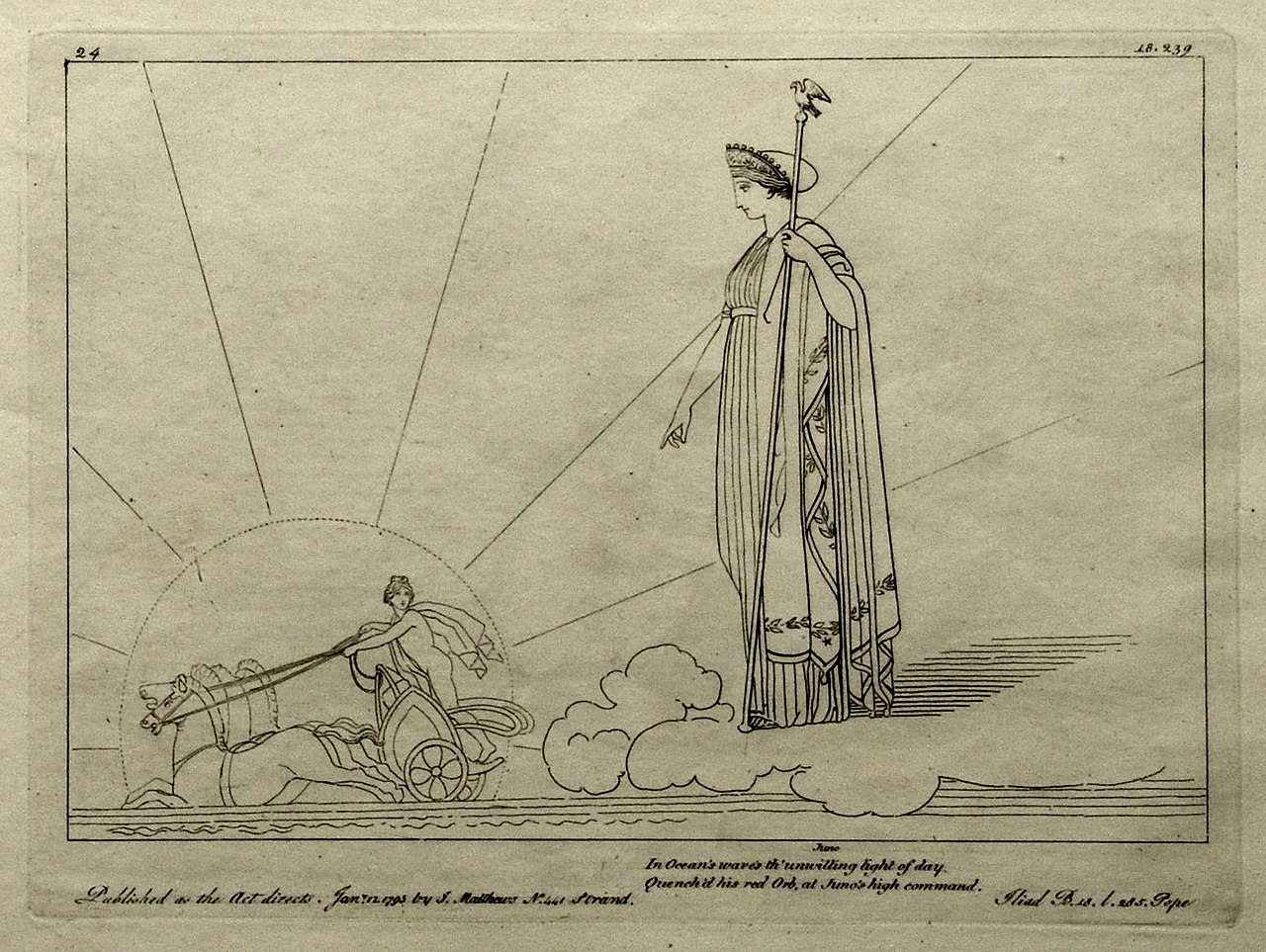In Book XVIII of the Iliad, after Patroclos's body has been recovered, there's this passage about the sun setting:
Then the Achaians were glad indeed to draw back the body of Patroclos out of the turmoil and lay it upon a bier. His companions trooped around it mourning; Achillês followed, weeping hot tears, when he saw his faithful friend stretched on the bier and torn with cruel wounds. He had sent him forth to the war with chariots and horses, hoping to welcome a safe return: but what a return was this!
The sun set unwearied, for Hera sent him unwilling down under the Ocean stream, and the Achaians at last had rest from their desperate struggles.
(translation by W.H.D. Rouse, 1938)
Why is the sun setting "unwearied" and "unwilling"? Why is Hera sending him down; I didn't think Hera was generally associated with the sun. What's going on here?
